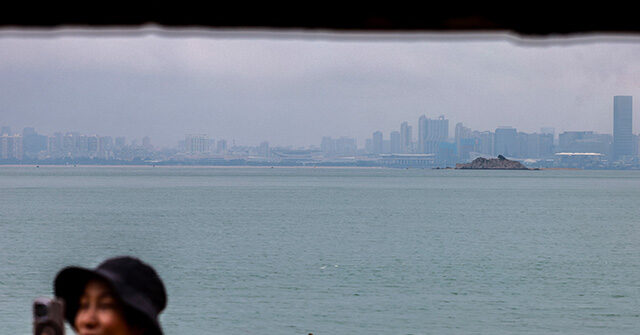The Straits Exchange Foundation (SEF), a semi-official organization established by the Taiwanese government, revealed that at least 40 Taiwanese travelers have gone missing in communist China over the past year. The Secretary-General of SEF, Luo Wen-jia, indicated that while some of these disappearances remain unexplained, approximately 30 additional individuals have been contacted, explaining their situations as voluntary disappearances due to personal reasons or legal issues in Taiwan. An example given was a 22-year-old man who evaded a fraud investigation by traveling to China. The SEF highlights a notable trend among younger Taiwanese individuals traveling to the mainland in pursuit of job opportunities, a practice encouraged by China prior to the economic downturn precipitated by the COVID-19 pandemic.
Luo cautioned young Taiwanese considering employment in China, emphasizing the significant youth unemployment rate that has soared amidst the pandemic, suggesting that high-paying jobs for Taiwanese may no longer be available. This warning points to a broader risk of young individuals falling victim to the allure of “highly profitable” job offers, which may turn out to be deceptive. Luo reiterated that the risk of arrest and forced disappearance under China’s legal system, which lacks the protections found in Western or Taiwanese law, remains imminent for those pursuing such opportunities. His remarks serve as a stark reminder that the Chinese government’s approach to Taiwan has shifted toward a more aggressive strategy, criminalizing dissent and labeling many peaceful individuals as “Taiwan independence separatists.”
The Chinese Communist government has attempted to attract Taiwanese citizens with easier visa processes, dubbed “Taiwan Compatriot Permits,” after initially promoting job offers. However, this tactic is overshadowed by Beijing’s ongoing crackdown on perceived separatists, with the newly released “22 guidelines” establishing severe repercussions, including the death penalty for those labeled as threats to state security. Such policies have sparked outrage among international observers, notably prompting members of the U.S. Congressional Taiwan Caucus to denounce these measures as detrimental to regional peace and stability. In light of these developments, Taiwan’s Mainland Affairs Council (MAC) has responded by upgrading its travel alerts for China, Hong Kong, and Macau, advising citizens to refrain from travel to these regions unless absolutely necessary.
Recent events have underscored the precarious situation faced by Taiwanese individuals in China, exemplified by the detention of four employees from Hon Hai Precision Industry Co., widely known as Foxconn, in Zhengzhou. The MAC described the circumstances around their detention as “quite strange,” especially given that Zhengzhou hosts Foxconn’s largest factory for Apple iPhone components. The SEF suggested that the detention might be linked to a larger case involving corruption and mismanagement by certain public security officials, which has severely shaken business confidence within the region. The stalled business operations at such major technological hubs due to these incidents have raised additional concerns for other Taiwanese firms operating in China.
As the safety of Taiwanese citizens traveling to the mainland hangs in the balance, SEF and MAC are amplifying their warnings, urging caution and vigilance. The ongoing reports of missing individuals, coupled with the aggressive stance taken by Chinese authorities against perceived dissenters, paint a daunting picture for those pondering employment or travel to China. These fears extend beyond personal safety; they encompass concerns about civil liberties and the potential repercussions of crossing paths with a system that is notorious for its lack of transparency and due process. The challenge for the Taiwanese populace becomes increasingly complex, as attractive opportunities in China are overshadowed by the risks involved.
In conclusion, the SEF’s alarming report serves as a significant warning to potential travelers and job seekers from Taiwan. As China’s economic conditions worsen—with escalating unemployment and tightening restrictions against dissent—Taiwanese citizens must critically evaluate their decisions and remain aware of the inherent risks. The guidelines issued by the Chinese government and the episodic detentions of Taiwanese nationals reflect a larger pattern of diplomatic tensions and the dangers associated with engaging with a system devoid of the rule of law as practiced in Taiwan. With changing landscapes in both regions, the need for cautious navigation of cross-strait relations has never been more pressing, and Taiwanese individuals are rightly encouraged to prioritize their safety and well-being above all.

